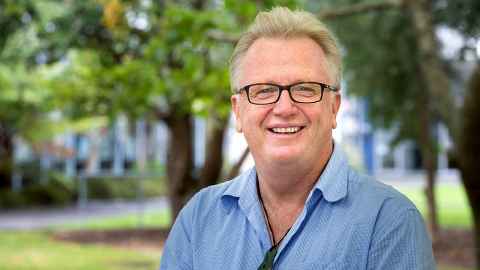Time to change how we talk about teachers
13 April 2018
Opinion: Does the meaning of 'teacher' need to be revitalised in order to drive some life back into the teaching profession? Peter O'Connor thinks so.

Words can get worn out. When they do, they lose their power and their ability to define and describe with accuracy. Words like brilliant, tragedy, superstar, and vital are cheapened by their overuse and a lazy willingness to describe anything and everything with the same tired old words.
It is perhaps surprising then that The Education (Protecting Teacher Title) Amendment Bill is before the House to protect the use of the word ‘teacher’. Except, of course, it is more complex than simply defending that word. It is about what sits behind the word, what it stands for and what has happened to it.
Teacher: It has complex meanings. As parents we are our children’s first teachers. Their first learning of the world is through us. Then, when our children turn five and go to school, the teachers arrive, acting in locus parentis and taking over our role, teaching and nurturing for six hours a day, and assuming some of our responsibility.
And then there are teachers from other sources. Nature is a great teacher, and so too are books, experience, love, loss and failure, and the school of hard knocks and life’s hard lessons. Conversely, history doesn’t seem to be a very good teacher as it seems to always repeat itself, and we never seem to learn from it. So yes, I can understand those who would say the term has become so ubiquitous that a narrow legal definition is pointless.
However, the legislation that established Partnership Schools has made it necessary to redefine what a teacher is. The slippery language of Charter Schools is very well captured in the ironic title of ‘Partnership Schools’ because they were never a partnership between anyone. They were merely a contract for services between government and private providers to deliver core state responsibilities. The term 'teacher' was deliberately undermined and de-professionalised as part of an ideological swipe at the power of the teacher unions and at teachers themselves. It was a tired old rehash of the mantra of market economics that argued state registered teachers could not possibly be as good as the bright, shiny unqualified charter school staff.
The slippery language of Charter Schools is very well captured in the ironic title of ‘Partnership Schools’ because they were never a partnership between anyone.
Teachers had a good nine years of concerted bashing from the previous government. They were held responsible for what was described as failing schools in failing communities. At one point they couldn’t even be paid properly. Ground down by stifling accountability measures labelled as national standards, teaching has become less and less desirable as a career.
The consequence of underpaying and undervaluing our teachers is writ large in schools all over the country. Teacher shortages are compounded by a falling away of young people coming into the profession: Empty school staffrooms and empty lunchboxes are the damning indictment of years of neglect and the wrong focus in education.
So how might we fix it? A Bill that again defines a teacher as a highly skilled, qualified professional is a beginning. And a good start to changing teacher status is that this Bill clearly rejects the nonsense of charter schools that said anyone in a classroom could do the job without the necessary training.
What the Government really needs to do though, and quickly, is to redefine the word ‘teacher’ in the public mind. To parents the word must once again mean someone I trust with my greatest treasure. To children it should mean someone I trust and respect. To new graduates it must begin to mean a career that is highly valued and respected. To teachers it should validate a choice many of us made when we were young to dedicate ourselves to lives of service to our communities. To politicians it should mean a group of people with a significant contribution to make to the fabric and future of our country. Teachers don't deserve to be political footballs.
When we begin to see and talk about teachers in this way, we will begin to fix what has been broken.
Peter O’Connor is a Professor in the School of Critical Studies in Education at the University of Auckland's Faculty of Education and Social Work.
This article reflects the opinion of the author and not the views of the University of Auckland.
Used with permission from Newsroom, Time to change how we talk about teachers published on 13 April 2018.